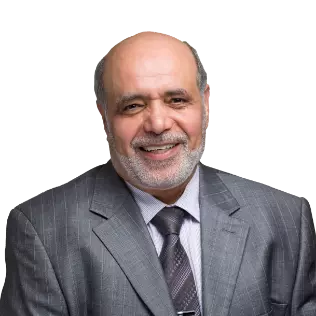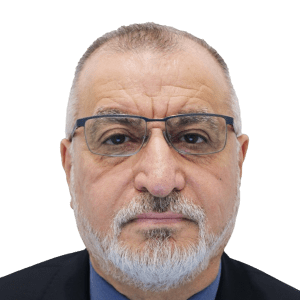PTSD (Post Traumatic Stress Disorder): Symptoms, Treatment & Causes

What is PTSD (Post Traumatic Stress Disorder)?
A traumatic incident, series of events, or set of circumstances may cause a person to develop posttraumatic stress disorder (PTSD), which is a psychiatric condition. PTSD could be perceived by a person as being in a traumatic situation on an emotional, physical, or even life-threatening level, which could have an impact on their mental, physical, social, and/or spiritual health. Examples of traumatic events include violent acts, serious accidents, terrorist attacks, war and conflict, rape, and natural calamities.
Long after the traumatic incident has passed, people with PTSD continue to endure intense, unsettling thoughts and sensations related to their experience. Flashbacks or dreams may cause them to relive the incident, they may experience sadness, fear, or rage, and they may feel distant or estranged from other people. A loud noise or an unintentional touch can trigger significant negative reactions in those with PTSD, who may avoid circumstances or people who remind them of the traumatic occurrence.
Causes of PTSD (Post Traumatic Stress Disorder)
Any traumatic experience or a very stressful, frightful, or upsetting incident can lead to the development of post-traumatic stress disorder (PTSD). Types of incidents that might cause PTSD include
- Assault of any kind
- Accidents
- Serious health problems
- Death
- War
- Violence
- Torture
Symptoms of PTSD (Post Traumatic Stress Disorder)
Post-traumatic stress disorder symptoms can begin as soon as one month after a stressful experience, but they can also take years to manifest. Significant issues are brought on by these symptoms in social, professional, and romantic interactions. Symptoms may also make it difficult for you to carry out regular activities as usual.
Intrusive memories, avoidance, unfavorable changes in thought and attitude, and changes in bodily and emotional reactions are the four main categories of PTSD symptoms. The severity of symptoms can change over time or from person to person.
Signs and symptoms of intrusive memories include the following:
- Unwelcoming and recurrently upsetting memories of the terrible incident
- Reliving the upsetting experience as though it were going to happen again
- Disturbing nightmares or dreams involving the horrific occurrence
- Severe mental discomfort or adverse physical responses to things that bring back terrible memories
Avoidance symptoms could include the following:
- Attempting to avoid reflecting on or discussing the painful incident
- Avoiding things, people, or situations that make you think of the painful occurrence
Symptoms of mood and thought changes that are detrimental include the following:
- Negative self-talk or attitudes about others or the world
- Pessimism about the future
- Memory issues, especially forgetting key details of the traumatic event
- Feeling isolated from friends and relatives
- Lack of interest in activities once found enjoyable
- Trouble feeling happy
- Emotional numbness
Arousal symptoms, often known as altered bodily and emotional responses, might include the following:
- Being easily frightened
- Being constantly alert for danger
- Self-destructive conduct, such as binge drinking or speeding
- Difficulty sleeping
- Difficulty concentrating
- Anger flare-ups, irritability, or violent conduct
- Overwhelming shame or guilt
Signs and symptoms for children aged 6 and under may also include the following:
- Playfully reenacting the traumatic incident or portions of it
- Unsettling nightmares that may or may not contain elements of the traumatic event
When to see a doctor for PTSD (Post Traumatic Stress Disorder)?
Speak to your doctor or a mental health professional if you experience unsettling thoughts and feelings regarding a traumatic occurrence that has happened at least a month ago, if your thoughts and feelings are intense, and/or if you believe you are having problems bringing your life back under control. Early treatment can lessen the likelihood of PTSD symptoms going worse. If you are having suicidal thoughts, please call the suicide helpline in your area immediately.
PTSD (Post Traumatic Stress Disorder) Risk Factors
Anyone can suffer from post-traumatic stress disorder after a traumatic event. The following things, however, could increase your risk of developing PTSD:
- Suffering a severe or protracted trauma
- Having gone through additional trauma earlier in life, such being abused as a child
- Having a profession that puts you at an increased risk of being exposed to traumatic situations, such as being in the military or a first responder
- Having other mental health conditions, such as depression or anxiety
- Having problems with drug or alcohol abuse or excessive drinking
- Not having a strong network of relatives and friends to lean on
- Having close family members who struggle with anxiety or depression
PTSD (Post Traumatic Stress Disorder) Complications
Your employment, your relationships, your health, and your day-to-day activities might all suffer as a result of PTSD. Also, PTSD could increase your risk of developing additional mental health conditions, such as
- anxiety and depression,
- overuse of drugs or alcohol,
- eating disorders,
- and suicidal thoughts.
PTSD (Post Traumatic Stress Disorder) Diagnosis
Unless at least one month has passed following the traumatic event, PTSD cannot be diagnosed. If PTSD symptoms are evident, the doctor will conduct a thorough medical history and physical examination before beginning an evaluation for PTSD. The doctor may use a number of tests to rule out physical conditions as the source of the symptoms. However, there are no lab tests that can be used to diagnose PTSD.
You might be directed to a psychiatrist, psychologist, or other mental health specialist who is uniquely qualified to diagnose and treat mental illnesses if no physical concern is discovered. To screen a person for the presence of PTSD or other mental illnesses, psychiatrists and psychologists employ specifically created interview and evaluation instruments. The doctor bases their PTSD diagnosis on the patient's reported symptoms, including any functional issues brought on by the symptoms. The doctor next decides if the severity of the malfunction and the symptoms point to PTSD.
PTSD (Post Traumatic Stress Disorder) Treatment
It is crucial to remember that not everyone who encounters trauma goes on to acquire PTSD, and not everyone with PTSD needs psychiatric care. Some people experience PTSD symptoms that gradually get better or go away. Others improve with the assistance of their support system, such as family and friends. Yet, many PTSD sufferers require medical attention to overcome their psychological discomfort, which can be severe and incapacitating. It's critical to keep in mind that trauma can cause serious distress. PTSD is treatable, and the distress is not the person's fault. A person has a better chance of recovering if they receive treatment sooner.
To assist people in recovering from PTSD, psychiatrists and other mental health specialists employ a variety of efficient, research-proven techniques. PTSD can be effectively treated with medication and talk therapy (psychotherapy).
PTSD (Post Traumatic Stress Disorder) Prevention
You can't stop a traumatic incident from happening. Yet, taking the following actions may help you avoid PTSD later on:
- Request assistance and support
- Recognize that you have control over your emotions
- Discover a positive meaning for the experience
- Focus on feeling good
- Think uplifting thoughts
- Keep in touch with the people that matter most in your life
- Consider yourself a survivor rather than a victim
References
Dyregrov, A., & Yule, W. (2006). A review of PTSD in children. Child and Adolescent Mental Health, 11(4), 176-184.
Lancaster, C. L., Teeters, J. B., Gros, D. F., & Back, S. E. (2016). Posttraumatic stress disorder: overview of evidence-based assessment and treatment. Journal of clinical medicine, 5(11), 105.
Peleg, T., & Shalev, A. Y. (2006). Longitudinal studies of PTSD: overview of findings and methods. CNS spectrums, 11(8), 589-602.
Scheeringa, M. S., & Zeanah, C. H. (2001). A relational perspective on PTSD in early childhood. Journal of Traumatic Stress: Official Publication of The International Society for Traumatic Stress Studies, 14(4), 799-815.
Meet our doctors from the Psychiatry department

















